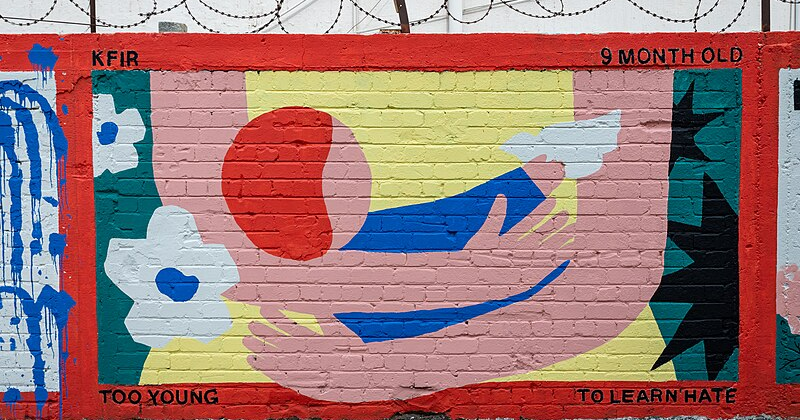

This coming Sunday will mark exactly six months since the Hamas attack on Israel, which resulted in the murder of ca. 1,200 people and the kidnapping of around 250 hostages. The numbers have been uncertain, and different news outlets keep reporting slightly different ones—a key reason for the discrepancy is the question that is still hanging over so many of those still missing since October 7th: were they taken hostage or were they killed outright, like Itay Chen, an American whose family was led to believe until last month that he was alive? Indeed, among those still missing are six to eight Americans.
The cease fire talks in November, 2023, resulted in the release of some captives, but somewhere just over 100 are still believed to be held in Gaza. Still in captivity remains a mother with her two young children, one of them the very youngest of all the hostages, just nine months old in October. Six months is a long time to be held by ruthless terrorists in uncertainty, deprivation, without access to basic nutrition and medicine and sanitation. What is happening to them now? What will happen to them in the future?
These are difficult questions, ones easy to ignore, located as we are an ocean and thousands of miles away. Indeed, if not for the few Americans among the captives, perhaps the US would have ignored them. The media largely has, over the past couple of months. The heart-breaking op-eds that keep asking others to pay attention have come, in fact, from the relatives of the hostages, like this CNN op-ed from Ofri Bibas Levy. The two little boys still held hostage are her nephews. Her reflections on the situation are convicting and difficult:
When countless people around the world watched the footage of armed terrorists abducting two little redheaded boys and their mother on October 7th, we were naive enough to believe it would be just a matter of days until the world’s outrage would be so great, the pressure so severe, that Hamas would surely release my nephews.
Kfir and Ariel were just 9 months and 4 years old when they were kidnapped from their home. And as far as we know, four-and-a-half months later, Kfir and Ariel are still held captive in Gaza. Kfir turned one in captivity, where he has spent a third of his life.
We, their family members, do not know if the boys are dead or alive, if they are being properly fed, if they are being held with or apart from their mother. My brother Yarden was separated from his wife Shiri and their children on October 7th. He was forced by Hamas to be filmed in a psychological terror video alleging that they were killed by Israel.
As the months go by, I wonder: Have the mothers and fathers of the world forgotten them? What if Ariel and Kfir were your children, your nephews?
And here are some serious questions about the implications of this kind of warfare for the future:
Before October 7th, I thought there was an agreed-upon red line that it was never acceptable to take civilians hostage. Sadly, that red line has been violently erased. Now, at the very least, can we agree to draw a red line around abducting innocent children? Terror groups around the world are watching how you all respond or don’t respond. They hear your silence, and they are taking notes.
As a military historian, I can say that alas, in every period of world history, civilians have suffered in horrific ways in war, including in what we see in these kidnappings and also in the bombing of the Gaza strip by Israel following the October 7th attack. This week alone, an attack by Israel killed seven humanitarian aid workers–an event described as “grave mistake” but that seems cold comfort. All of this should rightly outrage us, just as the suffering of Gazan children should—no matter our other disagreements on policy, targeting civilians, and especially innocent children in war on any side of the conflict is evil. The problem is, there is no obvious solution at hand.
Perhaps the most horrific truth to emerge from both Russia’s invasion of Ukraine, now over two years in duration, and the Israel-Hamas war, is that the modern rules of war that we thought were international law are in reality unenforceable.
Thank-you for this.